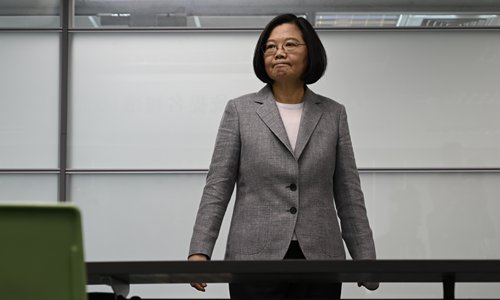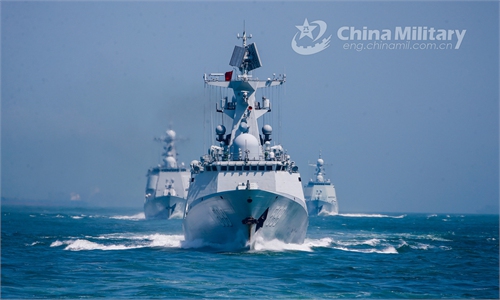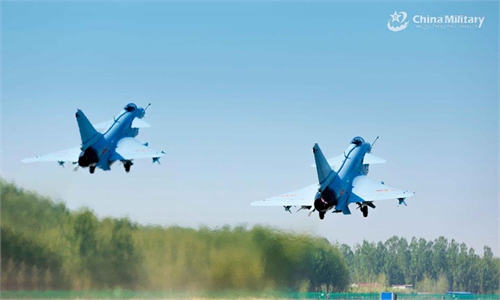
Photo: AFP
As many developing countries are facing severe vaccine shortages, one of Taiwan's few remaining "allies" has warned in an interview with the Financial Times that it may switch its diplomatic allegiance from Taipei to Beijing to gain access to Chinese vaccines as access to vaccines was "much more urgent than anything else."
Carlos Alberto Madero, Honduras's chief cabinet coordinator who is akin to a prime minister, is making such a statement out of his own country's interests. It is also a warning of a diplomatic crisis to the US and the island of Taiwan. When it comes to vaccine shortages, every country has its own considerations. These "diplomatic allies" of the island, such as Honduras, do not have diplomatic relations with the Chinese mainland, leaving them with no other choice but to change their foreign policy if the US cannot be counted on.
In response to such voices from Honduras, the US may well offer some vaccines as a consolation. But can this kind of symbolic and useless comfort solve the problems and pressures facing these countries? Ironically, when the US claims that other countries were engaged in "vaccine diplomacy", it is the country that most interested in playing with the "vaccine diplomacy".
Since the US is taking the lead in condemning China for political use of vaccines, it should take the lead in providing vaccines, instead of hoarding them and making excuses for their selfishness.
Not only are these countries now facing pressure over vaccine shortages, in the foreseeable future, there will be more and more similar pressures on "diplomatic allies" of Taiwan who will consider abandoning Taiwan to pivot toward the Chinese mainland. Taiwan's international isolation is an inevitable trend.
There are signs that the epidemic could be out of control in the island of Taiwan. However, with only 80 million doses that Washington is willing to offer overseas, Taiwan is not necessarily in an important position. The US is likely to provide some vaccines to the island. However, it will not account for a significant share.
To the US, how important is the island compared to India, where the epidemic is more severe? It is worth noting that Japanese Prime Minister Yoshihide Suga asked US pharmaceutical giant Pfizer to provide additional supplies of COVID-19 vaccine to Japan during his trip to the US. South Korean President Moon Jae-in also hopes to speed deliveries of US-made vaccines to his country during his trip to the US. Aren't those countries more important than a small island like Taiwan?
The DPP authorities regard Taiwan as the so-called "top student in the democratic system." However, their failure to control the epidemic makes this claim more like a joke. Without a correct understanding of the goodwill of the Chinese mainland in providing vaccines to its compatriots, the DPP's politicization of vaccines has undoubtedly brought greater challenges to Taiwan's epidemic prevention efforts. The final victims of this political game are the ordinary people in the island. There are over 20 million people on the island of Taiwan. Will the US vaccinate them all? This is at least unlikely to happen any time soon. But there is no better solution for DPP authorities except to expect mercy from the US.
From the humanitarian point of view, the Chinese mainland hopes the island can control the epidemic as soon as possible. If the US cannot provide vaccines in time, it is possible for the island of Taiwan to accept vaccine supplies from the Chinese mainland.
This may impose a limited influence on the US' relations with the island in the short term, but it will produce subtle changes in cross-Straits relations. If the Chinese mainland's vaccine plays a role in the island's fight against the epidemic, it will certainly benefit an improvement in emotional attachment of people across the Straits.
As the epidemic intensifies in Taiwan, the US has delivered only a small amount of the island's vaccine purchases, all AstraZeneca vaccines, which have not even been approved for emergency-use in the US. People in Taiwan should start asking themselves if the Americans cannot even provide vaccines in time, can they really trust Washington's commitment to defend the island of Taiwan?
The author is deputy director and senior fellow of the Institute of American Studies at the Chinese Academy of Social Sciences. opinion@globaltimes.com.cn



